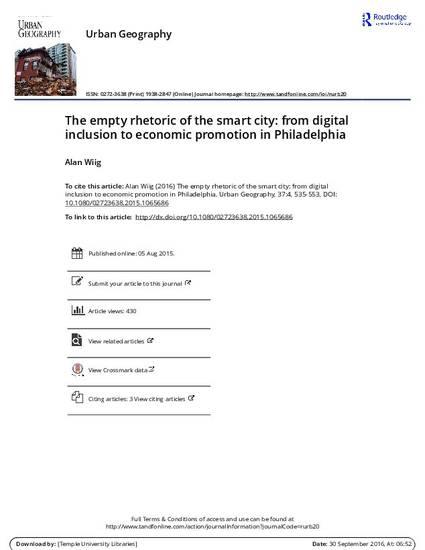
Article
The empty rhetoric of the smart city: from digital inclusion to economic promotion in Philadelphia
Urban Geography
(2016)
Abstract
Smart city initiatives have been adopted by cities worldwide, proposing forward- looking, technological solutions to urban problems big and small. These policies are indicative of a digitized urban condition, where social and economic exchange rely on globalized telecommunications networks, and governance strategies follow suit. Propelled through events such as IBM’s Smarter Cities Challenge, the smart city acts as a data-driven logic urban change where widespread benefit to a city and its residents is proposed, masking the utility of these policies to further entrepreneurial economic development strategies. In this article, I present a case study of the Digital On-Ramps initiative that emerged from IBM’s policy-consultation in Philadelphia. The initiative proposed a social media-style workforce education application (app) to train up to 500,000 low-literacy residents for jobs in the information and knowledge economy, but even as the city’s mayor declared the project a success, it did not meet expectations. This essay argues that the rhetoric of intelligent, transformative digital change works much more to “sell” a city in the global economy than to actually address urban inequalities.
Disciplines
Publication Date
2016
Citation Information
Alan Wiig. "The empty rhetoric of the smart city: from digital inclusion to economic promotion in Philadelphia" Urban Geography (2016) Available at: http://works.bepress.com/alan_wiig/2/
